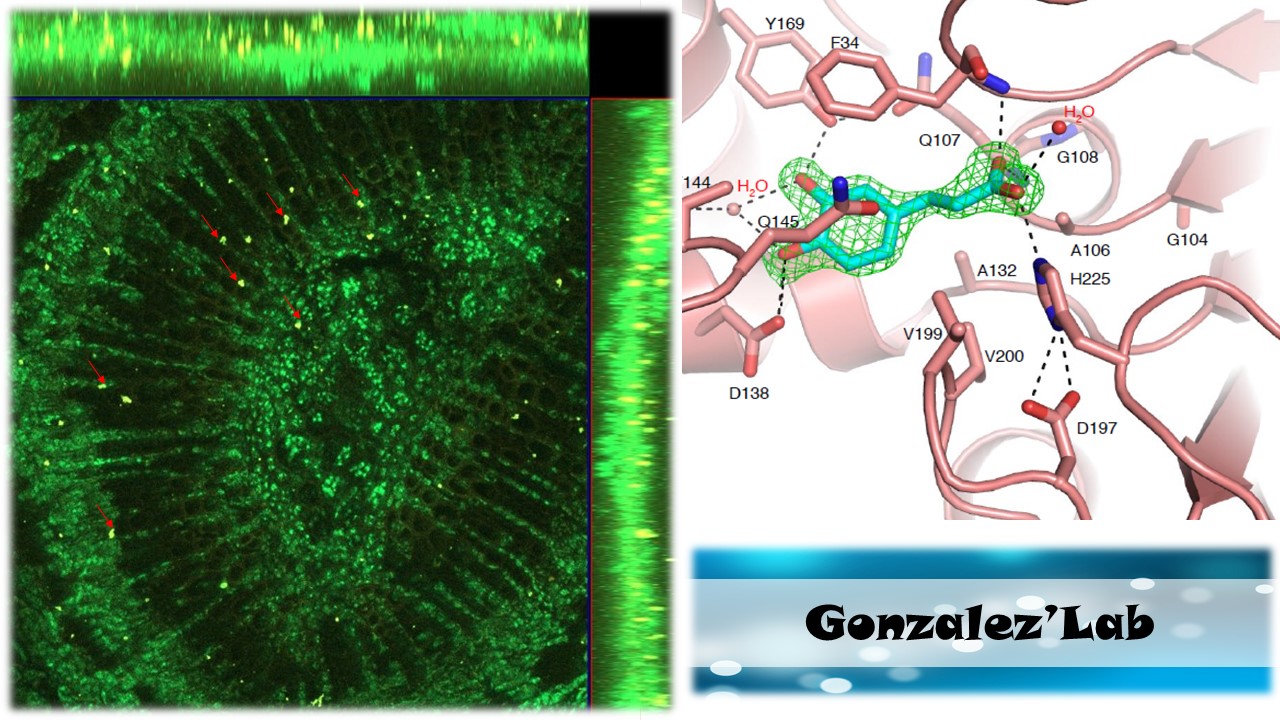Microbiology
The Gonzalez' Lab
Gonzalez's lab is interested in the functional and biological characterization of mechanisms mediating host-bacteria interactions. The research interest centers on identifying biological molecules, enzymes, and enzymatic products facilitating such interactions. This basic information increases our understanding of how biological systems work. Understanding the invisible biological network connecting living organisms helps us rationally design strategies to combat bacterial diseases, enhance host natural defenses, and/or improve the efficiency of actual biotechnological processes.
Laboratory technicians and students working in our laboratory are proficient in the use of several molecular biology and analytical techniques directed to:
- Amplification, cloning, and recombination of DNA molecules.
- Heterologous gene expression and protein purification.
- Identification of natural substrates.
- Determination of the metabolic pathway to which they are associated.
- Elucidation of regulatory circuits involved in its expression or activity.
- Identification of chemical accelerating/disrupting enzyme catalysis.
- Assessment of the biological impact using transcriptomic and proteomic.

